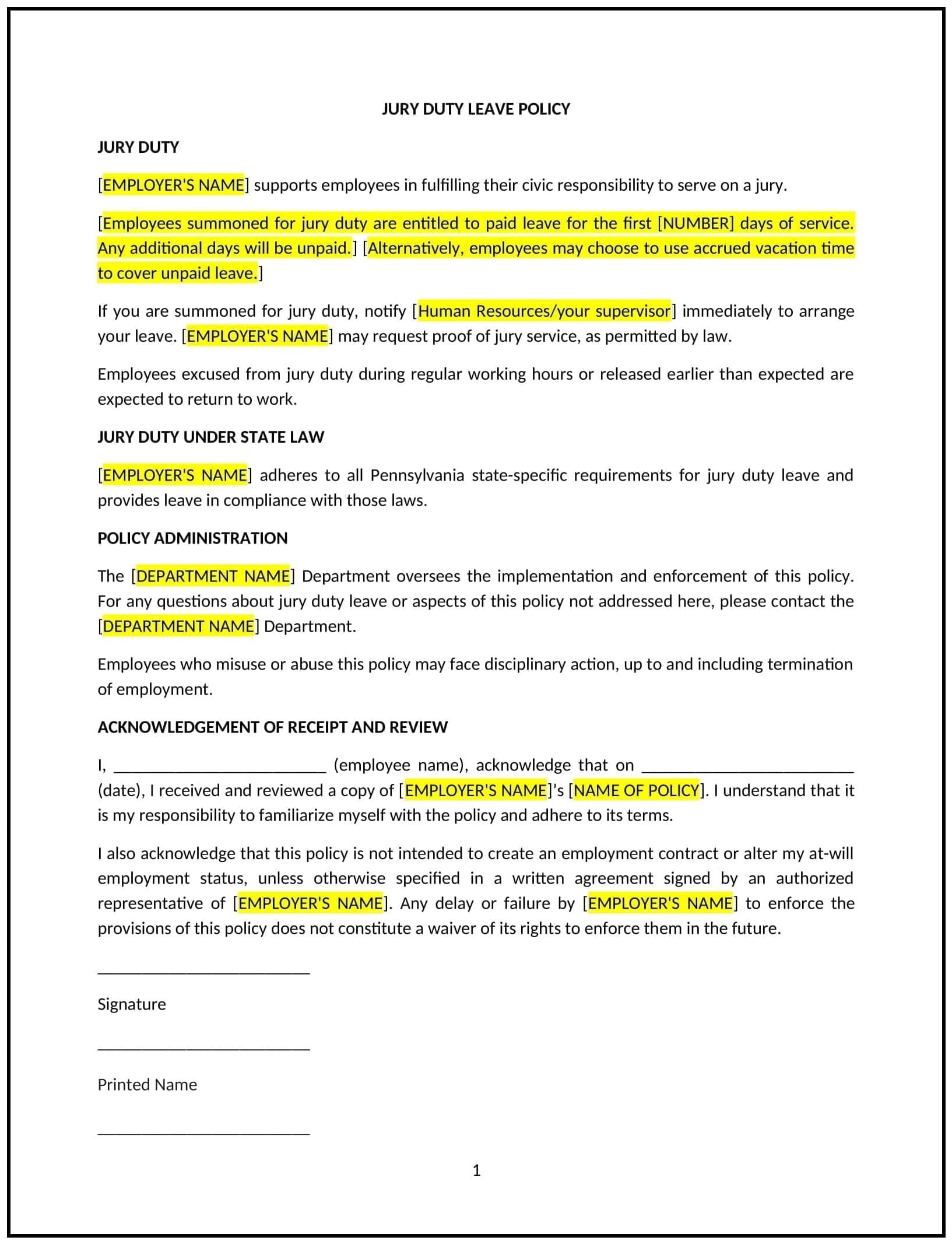Jury duty leave policy (Pennsylvania): Free template
Got contracts to review? While you're here for policies, let Cobrief make contract review effortless—start your free review now.

Customize this template for free
Jury duty leave policy (Pennsylvania)
This jury duty leave policy is designed to help businesses in Pennsylvania provide employees with clear guidelines for taking time off to fulfill their civic responsibility of serving on a jury. Whether addressing pay during jury duty or documentation requirements, this template ensures compliance with Pennsylvania labor laws while supporting employees in balancing work and civic duties.
By using this template, businesses can maintain transparency, support employee obligations, and align with legal requirements.
How to use this jury duty leave policy (Pennsylvania)
- Define eligibility: Clearly outline which employees are eligible for jury duty leave, such as full-time, part-time, or temporary workers.
- Address pay policies: Specify whether jury duty leave is paid or unpaid and under what conditions, in accordance with Pennsylvania law.
- Include documentation requirements: Provide instructions for employees to submit jury summons or proof of service to their supervisor or HR.
- Explain return-to-work expectations: Detail how employees should communicate their availability and return to work after completing jury duty.
- Reflect Pennsylvania-specific considerations: Tailor the policy to align with state labor laws, such as protections against termination or retaliation for serving on a jury.
Benefits of using a jury duty leave policy (Pennsylvania)
A well-structured jury duty leave policy supports compliance and employee trust. Here's how it helps:
- Supports civic engagement: Encourages employees to fulfill their legal obligation to serve on a jury without fear of workplace repercussions.
- Protects employee rights: Ensures compliance with Pennsylvania laws that protect employees from termination or retaliation for jury duty.
- Provides clarity: Sets clear expectations for leave requests, pay policies, and documentation requirements.
- Reduces disruptions: Helps businesses plan for temporary absences by requiring advance notice and documentation.
- Aligns with local regulations: Reflects Pennsylvania-specific labor laws and legal protections for employees serving on a jury.
Tips for using a jury duty leave policy (Pennsylvania)
- Communicate the policy: Share the policy with employees during onboarding or when they receive a jury summons to ensure understanding.
- Monitor compliance: Regularly review the policy and employee leave practices to ensure alignment with Pennsylvania labor laws.
- Support employees: Encourage open communication and provide guidance to employees on their rights and responsibilities related to jury duty.
- Maintain records: Keep documentation of jury duty leave requests and any related correspondence for future reference.
- Review periodically: Update the policy to reflect changes in Pennsylvania laws, federal regulations, or workplace needs.